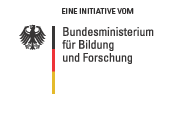Holger Zinke: white biotechnology pioneer
-
 <ic:message key='Bild vergrößern' />
<ic:message key='Bild vergrößern' />
- Ursprünglich wollte Holger Zinke Bauingenieur werden. Nun baut er Brücken von der Biologie in die Industrie. Quelle: biotechnologie.de
11.12.2008 -
Sustainability. To some this might sound like a well-worn slogan, but it is an affair of the heart for Holger Zinke. "Sustainability is not only right, but it is also important," is one of his quotes. These words from the 45-year-old Zinke are far from empty. The biologising of industry, the use of resource–friendly biocatalysts - Zinke had these issues on the agenda 15 years ago, before the concept of white biotechnology had even been invented.
Today, Zinke Heads BRAIN AG, based in Zwingenberg in Hessia. This flagship company, which has asserted itself as a relatively small player among the big corporations, is an advocate of the application of nature’s own toolbox. This has brought success. Over the years, Zinke has seen his company grow substantially - around 70 people are now employed at the firm. Over the course of its development, BRAIN AG has already closed around 50 cooperation agreements. Indeed, few major industrial groups do not count as clients of the Zwingenberg residents.
| BRAIN AG |
Founded in 1993, Holger Zinke’s biotechnology company has risen to become one of the most successful ventures in this sector. Visit the BRAIN AG website: http://www.brain-biotech.de/ |
Honoured with the 2008 German Environmental Award
The German Federal Environmental Foundation (DBU) (more...) has now deemed this development worthy of a special honour. DBU General Secretary Fritz Brickwedde personally recommended Holger Zinke for the 2008 German Environmental Award, which is worth 500,000 euros. The entrepreneur shared the award with Ernst Ulrich von Weizsäcker, Head of the Bren School of Environmental Sciences in Santa Barbara, USA. Both were present in person to receive the prize from German President Horst Köhler during a ceremony on 26 October in Rostock. "This is not the first time that white biotechnology has been considered for the prize," said Stefanie Heiden, Head of the biotechnology division at DBU.
Indeed, the DBU has always supported the many facets of biotechnology, despite it being often controversial among the public. Above all, this year’s environmental award took in a combination of ecology, economics and social contribution. "Whereas Ernst Ulrich Weizäcker represents ecological-theoretical superstructures, Holger Zinke stands for cautious entrepreneurship. In this sense, both are pioneers and pacesetters for sustainable development," concluded Heiden.
In the industry, the prize is seen as a significant signal. "We are pleased for Holger Zinke and for white biotechnology, which has now been brought a step further into the limelight," said Alfred Oberholz, Board Member at Evonik Industries AG. "Zinke is a rough jewel; if only there were more like him." Many who work alongside Holger Zinke appreciate his pragmatism and his focus on results. "That really distinguishes him," said Karl-Heinz Maurer from Henkel AG & Co.KGaA, which, alongside Zinke, was one of the initiators of the industry association Microbial Genomics (IMG). Maurer also sees a public relations expert in Zinke: "As one of the few entrepreneurs in Germany who deals exclusively with white biotechnology, Holger Zinke gives the field a human face."
How a career emerges from chance
For Zinke, the prize is above all a confirmation of his chosen course: "To receive such a distinction is overwhelming, and of course it is an enormous spur." A spur for a path that has not always been straightforward. Zinke, the son of a watchmaker, first consciously encountered biology through of something of a coincidence. A book on photosynthesis awoke an enthusiasm when the then 19-year-old was doing his military service. "Before, I had wanted to build bridges, to become a civil engineer," he says. However, he did not abandon the idea of building things up while at the TU Darmstadt, where he studied biology with an emphasis in microbiology under Professor Hans Günter Gassen, eventually gaining his doctorate with summa cum laude honours. By this point, the 30-year-old Zinke felt that "there also has to be a life outside of the laboratory."
Not long after, the company "Biotechnology Research And Information Network (BRAIN)" was born, Albeit without a business plan and financial investors – and without laboratories. "We were initially purely a consulting company, and slowly built up partnerships. But at some point the developed concepts had to be implemented," recalls Zinke. Only then could the technological aspects of the company begin to be established. The search for new premises with space for laboratories took the historical art and architecture aficionado into the Hessian provinces, and to Zwingenberg. Here, he found an old industrial building in the Bauhaus style. Zinke is certain that "this house has strongly influenced our corporate culture". Furthermore, it also gives an indication of where he sees his company's future: "One day, we want to be an industrial enterprise."




